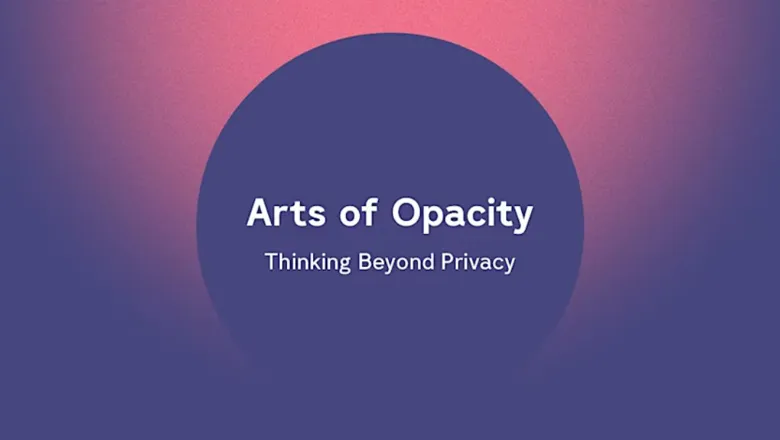
Biography
Vita Peacock is Principal Investigator on the collaborative project Surveillance and Moral Community: Anthropologies of Monitoring in Germany and Britain, funded by the European Research Council (grant no. 947867). The project uses ethnographic methods to study how and why people use a range of monitoring technologies voluntarily, as well as clarifying their risks from the perspective of data activists.
Vita received her Ph.D in Social Anthropology in 2014 from University College London. She has taught at University College London and Cambridge, and held visiting appointments at Columbia University New York, Cambridge, and LMU Munich. Her postdoctoral work has been supported by fellowships from the Economic and Social Sciences Research Council and the Humboldt Foundation, and in 2018 she received the Early Career Award from the European Association of Social Anthropologists. From 2014-2017 she carried out extensive fieldwork with supporters of the Anonymous movement in Britain, to be published as the monograph Digital Initiation Rites: The Arc of Anonymous in Britain.
Research interests and PhD supervision
- Digital Anthropology
- Digital Culture
- Surveillance Studies
- Digital Politics
Vita is currently designing courses in Digital Anthropology, Digital Ethnography, Surveillance Studies, and Digital Politics.
Expertise and public engagement
Vita is a socially committed scholar, who seeks to apply anthropological knowledge to make a productive intervention into legal and policy discourses around surveillance. She is co-founder and co-convenor of the Anthropology of Surveillance Network (ANSUR).
Her research has featured in the Times Higher Educational Supplement and the documentary film A Million Men. In 2018 she gave the public lecture at London’s Institute for Contemporary Arts, Wanting Everything Without Owning It. Vita is an advocate for the role of social anthropology in understanding the advance of digital society, and has contributed to a number of open anthropology platforms.
Selected publications
- 2015. “The Negation of Hierarchy and Its Consequences.” Anthropological Theory 15 (1): 3–21. https://doi.org/10.1177/1463499614564887.
- 2016a. “Academic Precarity as Hierarchical Dependence in the Max Planck Society.” HAU: Journal of Ethnographic Theory 6 (1): 95–119. https://doi.org/10.14318/hau6.1.006.
- 2016b. “Anthropology inside Out.” HAU: Journal of Ethnographic Theory 6 (1): 135–139. https://doi.org/10.14318/hau6.1.010.
- 2020. “Futility and Revelation at the Million Mask March.” Anthropological Theory Commons (blog). 2020.
Research

Centre for Digital Culture
The Centre for Digital Culture at King’s College London is an interdisciplinary research centre promoting research and debate on digital culture

Global Digital Cultures Research Group
do local practices of engagement with the digital circulate regionally and around the world, and how do they change during their travels? These are some of the questions that we ask in the Global Digital Cultures Research Group, approaching them from different disciplinary and methodological traditions, and focusing on different countries and regions, but also on global phenomena and their local articulations.

SAMCOM
Surveillance—watching over through technology—has become part of the structure of European life.
Project status: Ongoing
News
New ERC Project Exploring the Moral Dimensions of Surveillance launches
A new project exploring how morality interacts with surveillance has launched

Events

Arts of Opacity: Thinking Beyond Privacy
How do we imagine a response to surveillance that does not involve privacy? Five anthropologists and art practitioners present their work.
Please note: this event has passed.
Features
Why privacy is not the antidote we need to intrusive digital surveillance
What is the opposite of surveillance? Research from the Department of Digital Humanities considers the complex moralities of monitoring and discovers new...

Research

Centre for Digital Culture
The Centre for Digital Culture at King’s College London is an interdisciplinary research centre promoting research and debate on digital culture

Global Digital Cultures Research Group
do local practices of engagement with the digital circulate regionally and around the world, and how do they change during their travels? These are some of the questions that we ask in the Global Digital Cultures Research Group, approaching them from different disciplinary and methodological traditions, and focusing on different countries and regions, but also on global phenomena and their local articulations.

SAMCOM
Surveillance—watching over through technology—has become part of the structure of European life.
Project status: Ongoing
News
New ERC Project Exploring the Moral Dimensions of Surveillance launches
A new project exploring how morality interacts with surveillance has launched

Events

Arts of Opacity: Thinking Beyond Privacy
How do we imagine a response to surveillance that does not involve privacy? Five anthropologists and art practitioners present their work.
Please note: this event has passed.
Features
Why privacy is not the antidote we need to intrusive digital surveillance
What is the opposite of surveillance? Research from the Department of Digital Humanities considers the complex moralities of monitoring and discovers new...

